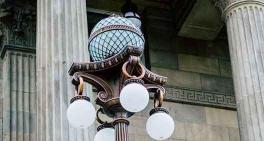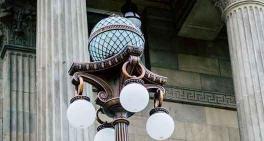Court halts police subpoena for media’s protest images
Law Review
Less than 24 hours before a court order would have required five Seattle media companies to turn over unpublished protest photos and videos to police, the state Supreme Court has granted them a temporary respite.
A Washington state Supreme Court commissioner on Thursday postponed a King County judge’s order that would have required The Seattle Times and local television stations KIRO, KING, KOMO and KCPQ, to comply with a Seattle police subpoena by handing over photos and video taken during racial injustice protests.
Instead, Commissioner Michael E. Johnston agreed with the news companies’ motion for an emergency stay while the high court considers the media groups’ appeal of King County Superior Court Judge Nelson Lee’s July 31 order, The Seattle Times reported.
“On balance, I am not persuaded that the potential harm to SPD (Seattle Police Department) outweighs the potential harm to the news media,” Johnston wrote in his ruling.
Lee had given the news companies until Aug. 21 to produce to his court their unpublished images from a 90-minute period when protests turned chaotic in downtown Seattle on May 30.
Last month, the Seattle Police Department contended it was at a standstill in its investigation of arson and thefts that day, leading detectives to seek and obtain a subpoena for the images. Investigators say the images could help identify people who torched five Seattle Police Department vehicles and stole two police guns from police vehicles during the mayhem.
The news groups countered that Washington’s so-called “shield law” protected the images from disclosure. As in most states, journalists in Washington are shielded from law enforcement subpoenas except under limited circumstances. The laws are an extension of the First Amendment, meant to guard against government interference in news gathering.
Lee, a former King County prosecutor, ruled that the rare public safety concerns of the case overrode the shield law’s protections, subjecting the news photos and video to the subpoena. Under his order, Lee or a special master of his choosing would have screened the media images privately to decide whether any should be turned over to police.
The ruling drew criticism from First Amendment groups, the American Civil Liberties Union, press organizations and members of the Seattle City Council, who asked City Attorney Pete Holmes to drop the subpoena. Seattle police officials, however, have defended the subpoena as necessary to solve the investigation and retrieve the weapons, which remain missing.
On Aug. 11, the news groups appealed directly to the Supreme Court, asking the panel to halt enforcement of the subpoena until the court resolved the news groups’ contentions that Lee erred in his ruling.
“The equities favor the news media, though I am deeply mindful of the public safety concerns attendant to stolen police firearms and intentional destruction of law enforcement vehicles and other property,” Johnston wrote.
The Supreme Court will decide at “the earliest opportunity as to whether to retain the (media companies’) appeal or refer it to the Court of Appeals,” Johnston’s ruling stated.
Related listings
-
What Supreme Court? Trump's HHS pushes LGBT health rollback
Law Review 06/19/2020The Trump administration Friday moved forward with a rule that rolls back health care protections for transgender people, even as the Supreme Court barred sex discrimination against LGBT individuals on the job. The rule from the Department of Health ...
-
Senate panel advances McConnell ally for DC appeals court
Law Review 06/03/2020The Senate Judiciary Committee has advanced the nomination of a 38-year-old judge and ally of Senate Majority Leader Mitch McConnell to serve on a federal appeals court, despite Democrats’ objections that he’s inexperienced and biased aga...
-
Texas court: Virus fear alone not enough for mail balloting
Law Review 05/28/2020Texas officials fighting to block widespread mail-in voting during the pandemic claimed victory after the state's highest court ruled Wednesday that a lack of immunity to the coronavirus doesn't qualify someone to cast a ballot by mail.The decision w...




